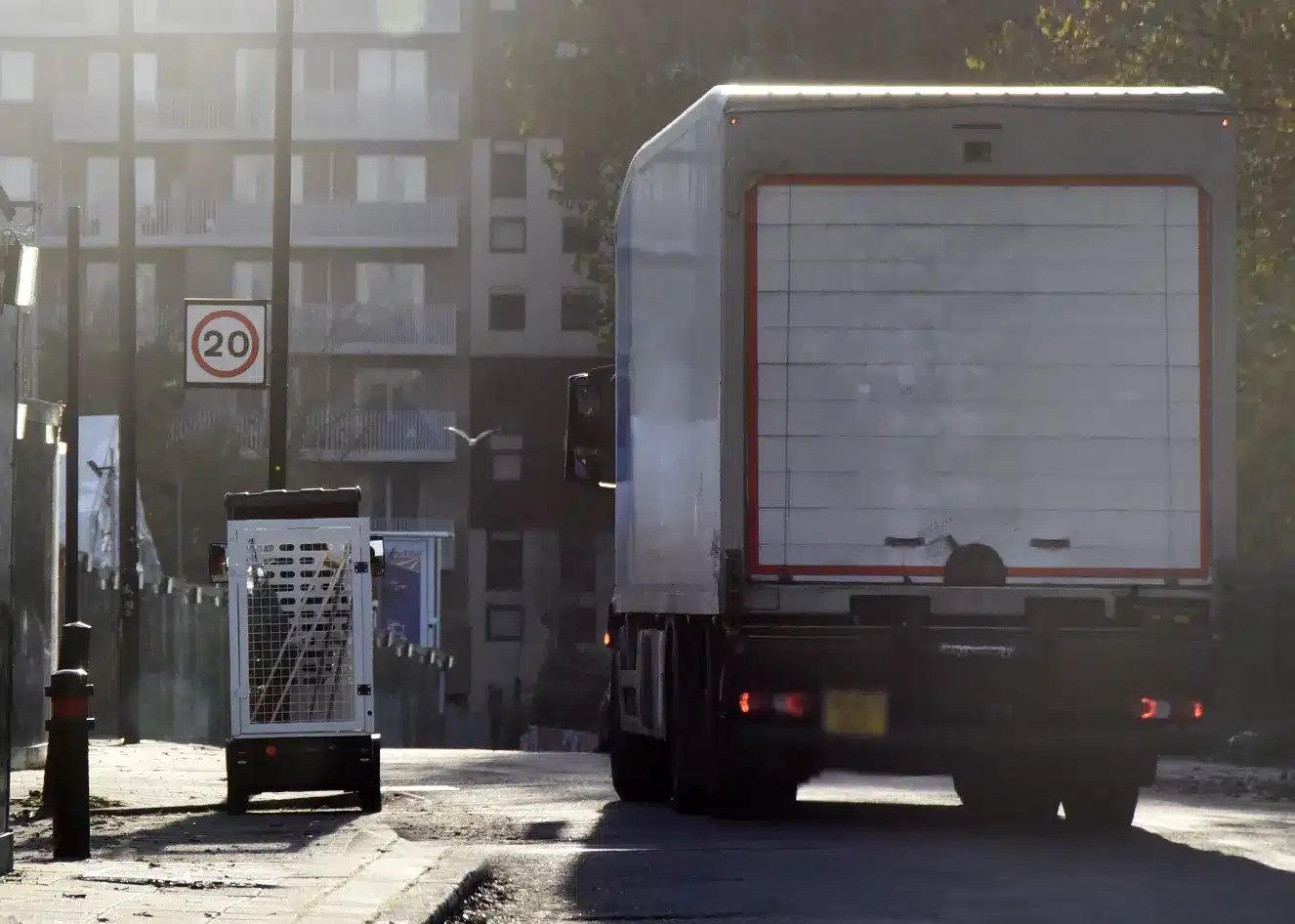Urban logistics present unique challenges, particularly in densely populated areas where traffic congestion and limited parking complicate delivery schedules. Traditional delivery vehicles often struggle to navigate narrow streets and find parking close to delivery points, causing delays and inefficiencies. These inefficiencies can lead to increased operational costs and a decline in customer satisfaction due to delays. Enter Fernhay’s eQuad utility vehicles, designed for last-mile delivery.
The Fernhay eQuad
Fernhay’s eQuad is pioneering in the realm of last-mile delivery. These utility vehicles are specifically designed to address the common pain points of urban logistics. The eQuad combines cutting-edge technology with practical design to create a vehicle that is both efficient and easy to use. With a focus on efficiency, sustainability, and versatility, the eQuad aims to streamline the delivery process, making it faster, more reliable, and environmentally friendly. By reducing reliance on traditional delivery trucks, the eQuad can significantly reduce traffic congestion in urban areas.
Key Features of the eQuad:
- Compact Design: The compact design allows it to navigate through narrow streets and crowded urban areas with ease, unlike traditional delivery trucks that often get stuck in traffic or face parking challenges. This compactness ensures that deliveries can be made more quickly and efficiently, reducing overall delivery times.
- Electric Propulsion: As an electric vehicle, the eQuad reduces carbon emissions, contributing to a cleaner urban environment and aligning with sustainability goals. The use of electric power also reduces the noise pollution commonly associated with delivery trucks, making urban areas quieter.
- High Maneuverability: Its lightweight and agile structure enable quick stops and easy handling, making it ideal for frequent deliveries within close proximity. The high maneuverability of means that delivery routes can be more flexible, accommodating sudden changes in traffic conditions.
- Load Capacity: Despite its small size, it boasts a significant load capacity, ensuring it can carry substantial amounts of goods without compromising on speed or efficiency. This capacity allows supermarkets to consolidate deliveries, reducing the number of trips needed and further increasing efficiency.
Benefits for Urban Supermarket Logistics
While the idea of utilising Fernhay’s eQuad for urban supermarket logistics is still a concept, it presents numerous potential benefits. These benefits highlight the transformative potential of integrating the vehicles into urban delivery systems, particularly for supermarkets.
1. Reduced Delivery Times The eQuad’s ability to bypass traffic jams and find parking close to delivery points means that supermarkets could receive their deliveries more quickly. This is crucial for urban supermarkets that require frequent restocking of perishable goods. Faster delivery times translate to fresher products on the shelves, enhancing customer satisfaction and reducing waste.
2. Enhanced Efficiency By using eQuads, supermarkets could optimise their delivery schedules, ensuring that goods arrive just in time without delays. This not only improves inventory management but also reduces the need for large storage spaces within the supermarket, freeing up valuable floor space for more product displays. Efficient deliveries also mean that staff can spend more time focusing on customer service rather than managing logistics.
3. Lower Environmental Impact With cities increasingly focusing on sustainability, the eQuad’s electric propulsion system offers a significant advantage. By reducing the carbon footprint of deliveries, supermarkets can contribute to cleaner air and comply with local regulations aimed at reducing vehicular emissions. This environmental responsibility can also enhance the supermarket’s brand image, attracting eco-conscious consumers.
4. Cost Savings Operating costs for electric vehicles are generally lower than those for traditional combustion engine vehicles. This includes savings on fuel, maintenance, and potential congestion charges in low-emission zones. These savings can be substantial over time, making the eQuad a cost-effective choice for urban supermarkets. Additionally, lower operational costs can lead to lower prices for consumers, increasing competitiveness.
Implementing the eQuad in Urban Logistics
1. Route Optimisation Urban supermarkets could integrate the eQuad into their logistics operations by first identifying the most congested routes and delivery points that would benefit from the vehicle’s agility and compact size. Advanced route optimisation software could be used to plan the most efficient paths for multiple deliveries. This software can take into account real-time traffic data, ensuring that eQuads are always taking the quickest and most efficient routes.
2. Fleet Management Supermarkets should consider maintaining a mixed fleet that includes both traditional delivery trucks for longer hauls and eQuads for last-mile deliveries. This hybrid approach ensures that the strengths of each vehicle type are maximised, improving overall logistics efficiency. A well-managed fleet can also adapt more easily to changing delivery needs and schedules, providing greater flexibility.
3. Staff Training To fully leverage the benefits of the eQuad, delivery staff would need to be trained on its operation and maintenance. This includes understanding how to charge the vehicle, manage its load capacity, and navigate urban environments effectively. Proper training ensures that staff can use the eQuads to their full potential, reducing the risk of accidents and improving delivery times.
4. Collaboration with Local Authorities Supermarkets could collaborate with local authorities to establish designated loading and unloading zones for eQuads. This can help streamline deliveries and minimise disruptions to traffic flow, benefiting both the supermarket and the community. Working with local governments can also help in gaining support for the use of electric vehicles, potentially leading to incentives or subsidies.
Conclusion
Fernhay’s eQuad utility vehicles offer a transformative solution for urban supermarket logistics, though it remains a concept at this stage. By addressing the unique challenges of last-mile delivery in densely populated areas, the eQuad has the potential to enhance efficiency, reduce environmental impact, and offer significant cost savings. As urban areas continue to grow and sustainability becomes increasingly important, innovative solutions like the eQuad will play a crucial role in shaping the future of urban logistics. The successful implementation of such concepts can set new standards in the logistics industry, driving further innovation and improvements.

